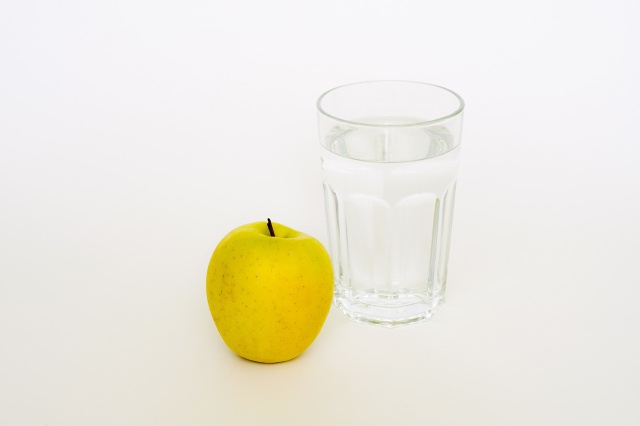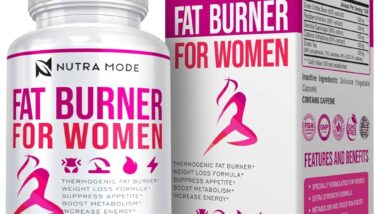Lipedema natural weight loss focuses on reducing inflammation and improving lymphatic flow. Healthy eating and regular exercise are crucial components.
Lipedema is a chronic condition that affects the distribution of fat in the body, primarily in the legs and arms. Those with lipedema may find it challenging to lose weight through traditional methods. Natural weight loss strategies emphasize anti-inflammatory diets rich in whole foods, lean proteins, and healthy fats.
Regular low-impact exercises like swimming and walking can also help improve lymphatic drainage and overall health. Consistent lifestyle changes and professional guidance can make a significant difference in managing lipedema symptoms and promoting a healthier weight.
Lipedema Overview
Lipedema is a chronic disorder. It mainly affects women. It causes a build-up of fatty tissue. This often occurs in the legs and sometimes in the arms. Many people misunderstand this condition. It is different from obesity or lymphedema.
What Is Lipedema?
Lipedema is a fat disorder. The cause is unknown. It usually starts during puberty. It can also start after pregnancy or menopause. The fat builds up unevenly. This causes pain and swelling. The skin may feel tender.
Lipedema is not caused by eating too much. It is a medical condition. It often runs in families. This suggests a genetic link. Lipedema affects about 11% of women. Men rarely get lipedema.
Common Symptoms
The symptoms of lipedema can vary. Here are some common signs:
- Fat deposits on legs, thighs, and buttocks.
- Pain and tenderness in the affected areas.
- Easy bruising in the affected areas.
- Fat that feels different from regular fat.
- Swelling in the legs that does not go away with rest.
- Difficulty losing weight in affected areas.
Lipedema can affect a person’s mobility. It can also lead to emotional distress. Early diagnosis is important. This helps to manage the symptoms better.
Dietary Strategies
Following the right dietary strategies can help manage lipedema. Embracing specific foods can reduce inflammation and support natural weight loss. Below are some key dietary strategies to consider.
Anti-inflammatory Foods
Eating anti-inflammatory foods is crucial for lipedema management. These foods can help reduce swelling and pain.
- Leafy Greens: Spinach, kale, and swiss chard are excellent choices.
- Berries: Blueberries, strawberries, and raspberries are rich in antioxidants.
- Fatty Fish: Salmon, mackerel, and sardines provide omega-3 fatty acids.
- Nuts and Seeds: Almonds, walnuts, and flaxseeds can be beneficial.
- Olive Oil: Use extra virgin olive oil for cooking and salads.
Nutrient-rich Diet
A nutrient-rich diet ensures the body gets essential vitamins and minerals. This type of diet supports overall health and weight management.
| Food Group | Examples | Benefits |
|---|---|---|
| Vegetables | Broccoli, carrots, bell peppers | High in vitamins and fiber |
| Fruits | Apples, oranges, bananas | Rich in vitamins and antioxidants |
| Whole Grains | Oats, quinoa, brown rice | Provide sustained energy |
| Lean Proteins | Chicken breast, tofu, beans | Support muscle health |
| Dairy or Alternatives | Greek yogurt, almond milk | Good source of calcium |
Focus on these food groups to ensure a balanced diet. This will help in managing lipedema effectively.
Exercise Tips
Exercise plays a vital role in managing lipedema. It helps reduce pain, improve mobility, and promote natural weight loss. Below are some effective exercise tips that can help you achieve your fitness goals.
Low-impact Workouts
Low-impact workouts are gentle on your joints and ideal for lipedema. These exercises help reduce swelling and improve circulation.
- Walking: Walk for 30 minutes daily. It boosts circulation and burns calories.
- Swimming: Swim to engage muscles without straining joints.
- Yoga: Practice yoga to improve flexibility and reduce stress.
- Water Aerobics: Exercise in water to support your body and reduce impact.
Strength Training
Strength training helps build muscle and improve metabolism. It is essential for managing lipedema.
| Exercise | Benefits |
|---|---|
| Bodyweight Exercises | Use your body weight for squats and lunges. |
| Resistance Bands | Incorporate bands to add resistance without heavyweights. |
| Light Dumbbells | Use light weights to strengthen your muscles gradually. |
| Pilates | Focus on core strength and stability. |
Consistency is key to seeing results. Start slow, listen to your body, and gradually increase intensity.
Lymphatic Support
Lymphatic Support is essential for managing lipedema and promoting natural weight loss. The lymphatic system helps remove toxins and excess fluid from the body. Supporting this system can reduce swelling and improve overall health.
Lymphatic Drainage Techniques
Lymphatic drainage techniques can boost lymphatic function. They help the body eliminate waste and toxins. Here are some effective methods:
- Manual Lymphatic Drainage (MLD): A gentle massage technique that stimulates lymph flow.
- Dry Brushing: Use a dry brush to gently stroke the skin. This helps stimulate the lymphatic system.
- Deep Breathing: Practice deep breathing exercises. This encourages lymph flow and helps the body detoxify.
- Hydration: Drink plenty of water. Proper hydration supports lymphatic health.
Compression Garments
Compression garments are vital for managing lipedema. They provide support and reduce swelling. Here are some benefits:
| Benefit | Description |
|---|---|
| Improved Circulation | Compression garments help blood and lymph flow more efficiently. |
| Reduced Swelling | They prevent fluid build-up, reducing swelling in affected areas. |
| Support and Comfort | These garments provide physical support and comfort during daily activities. |
Choose the right compression garment for your needs. Ensure it fits well and is comfortable. Regular use can make a significant difference in managing lipedema.
Hydration Importance
Hydration plays a crucial role in natural weight loss for those with lipedema. Staying hydrated helps in many ways, aiding overall health and weight management. This section covers the importance of hydration and provides detailed recommendations and benefits.
Water Intake Recommendations
Proper hydration is vital for everyone, especially for those managing lipedema. Here are some general guidelines for water intake:
- Drink at least 8 glasses of water each day.
- Adjust your intake based on body weight and activity level.
- Consume more water if you exercise or sweat heavily.
- Include water-rich foods like fruits and vegetables in your diet.
| Body Weight | Recommended Daily Water Intake |
|---|---|
| 50 kg | 1.7 liters |
| 60 kg | 2.0 liters |
| 70 kg | 2.3 liters |
| 80 kg | 2.6 liters |
Benefits Of Staying Hydrated
Keeping hydrated offers several benefits for those dealing with lipedema:
- Reduces Swelling: Water helps flush out excess salt from the body.
- Boosts Metabolism: Proper hydration improves your metabolic rate.
- Enhances Digestion: Water aids in digestion and nutrient absorption.
- Promotes Healthy Skin: Staying hydrated keeps your skin supple and healthy.
- Curbs Appetite: Drinking water before meals can help control hunger.
Remember to keep a water bottle handy. Drink small amounts frequently to stay hydrated throughout the day.
Stress Management
Managing stress is crucial for those with lipedema. Stress can worsen symptoms and hinder weight loss. Effective stress management can make a significant difference in overall health and well-being.
Mindfulness Practices
Mindfulness helps reduce stress levels. It involves being present and aware of your thoughts and feelings. Here are some simple practices:
- Meditation: Spend 5-10 minutes each day in quiet meditation.
- Deep Breathing: Practice deep breathing exercises to calm your mind.
- Gratitude Journaling: Write down three things you’re thankful for each day.
These practices can help you stay grounded and relaxed.
Relaxation Techniques
Relaxation techniques are essential for stress management. They can be easily incorporated into your daily routine.
| Technique | Description |
|---|---|
| Progressive Muscle Relaxation | Tense and then relax each muscle group. Start from your toes and work your way up. |
| Yoga | Practice gentle yoga poses to relax your body and mind. |
| Aromatherapy | Use essential oils like lavender or chamomile to create a calming environment. |
Incorporating these techniques can help reduce stress and improve your quality of life.
Sleep And Recovery
Sleep and recovery play a vital role in natural weight loss for those with lipedema. Quality sleep helps the body heal and reduces stress, which can help manage weight.
Sleep Quality Tips
Good sleep is essential. Here are some tips for better sleep quality:
- Maintain a consistent sleep schedule. Go to bed at the same time every night.
- Keep your bedroom cool, dark, and quiet.
- Avoid screens at least an hour before bedtime.
- Limit caffeine and sugar intake in the evening.
- Engage in relaxing activities before sleep, like reading or meditation.
Importance Of Rest
Rest is crucial for recovery and weight management. Here’s why:
| Benefit | Explanation |
|---|---|
| Reduces Inflammation | Quality sleep helps lower body inflammation levels. |
| Boosts Metabolism | Rest helps regulate metabolism, aiding weight loss. |
| Enhances Mood | Good sleep improves mood, reducing stress-related eating. |
Prioritizing rest can make a significant difference in managing lipedema and achieving natural weight loss. Aim for 7-9 hours of sleep each night for optimal benefits.
Community And Support
Community and support play a vital role in managing Lipedema natural weight loss. Surrounding yourself with a community can provide emotional support and practical advice. This section will discuss how to find support groups and connect with others on the same journey.
Finding Support Groups
Joining a support group can make a huge difference. These groups offer a space to share experiences and tips. Look for local or online groups dedicated to Lipedema. Here are some ways to find them:
- Search social media platforms like Facebook or Instagram.
- Check online forums and websites.
- Ask your healthcare provider for recommendations.
- Attend local health events or seminars.
Support groups often provide access to valuable resources. These can include diet plans, exercise routines, and mental health support. Being part of a group makes the journey less lonely.
Connecting With Others
Connecting with others who have Lipedema can be very encouraging. Sharing your journey helps build a strong support system. Here are some ways to connect:
- Join online communities or forums.
- Participate in group activities or challenges.
- Share your story and listen to others.
- Follow influencers or experts in the field.
Using social media is a great way to find others. You can exchange tips, share progress, and offer moral support. Here’s a simple table to summarize the benefits:
| Method | Benefits |
|---|---|
| Online Communities | 24/7 access, diverse support |
| Group Activities | Motivation, shared experiences |
| Personal Stories | Inspiration, relatability |
| Following Influencers | Expert advice, updated info |
Building a network of support is essential for Lipedema natural weight loss. It helps you stay motivated and informed. Remember, you are not alone in this journey.
Frequently Asked Questions
What Is Lipedema?
Lipedema is a chronic condition causing excessive fat buildup in the lower body. It mainly affects women. This condition can lead to pain and mobility issues.
Can Lipedema Be Treated Naturally?
Yes, natural treatments for lipedema include a healthy diet and regular exercise. These can help manage symptoms and improve quality of life.
What Foods Help With Lipedema?
Anti-inflammatory foods like fruits, vegetables, and lean proteins can help. Avoid processed foods and sugar to manage lipedema symptoms.
Does Exercise Help With Lipedema?
Yes, regular low-impact exercises like walking and swimming can help. They improve circulation and reduce swelling in lipedema patients.
Conclusion
Achieving natural weight loss with lipedema is possible with the right approach. Focus on a balanced diet, regular exercise, and self-care. These steps can help manage symptoms and improve overall well-being. Remember, consistency is key. Embrace a healthier lifestyle to see lasting results.
Your journey to better health starts today.


